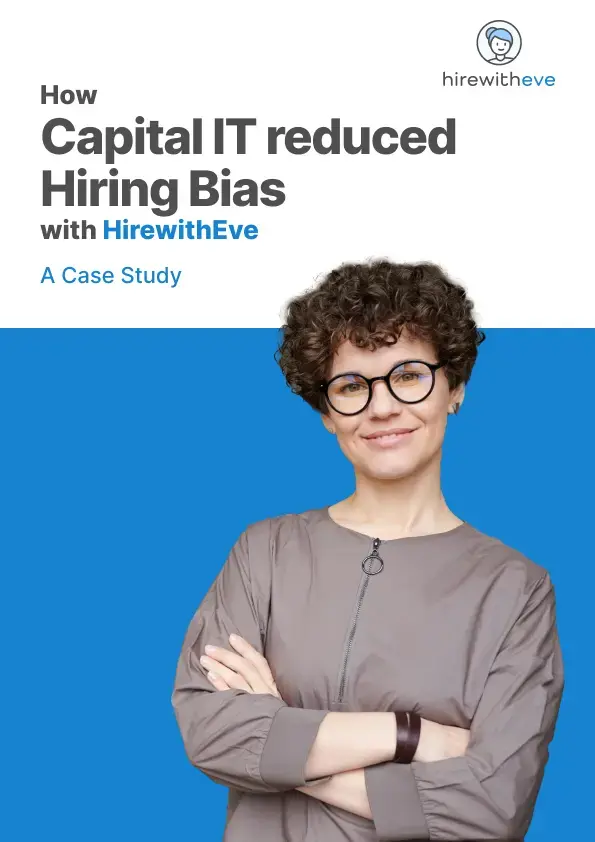Unlocking STAR Talent: Embracing Skills-Based Hiring

Unlocking STAR Talent: Embracing Skills-Based Hiring

The job market is evolving, and so are the workers who fill it. With the traditional pathway of earning a four-year college degree becoming less accessible or appealing to many, a new segment of the workforce has emerged: STARs, or Skilled Through Alternative Routes. These individuals have gained valuable skills outside the conventional academic setting, often through community colleges, workforce training, certifications, military service, personal interests, or volunteer work.
In this blog, we’ll explore why STARs represent a crucial, yet often overlooked, talent pool. We’ll discuss the challenges they face due to traditional hiring practices, how skills-based hiring can level the playing field, and why platforms like HirewithEve are perfectly positioned to help you find and hire the best STARs for your organization.
Table of contents
Understanding STARs: Who Are They?
The Paper Ceiling: A Barrier to Opportunity
5 Reasons Organizations Should Tear the Paper Ceiling and Hire STARs
How Skills-Based Hiring Helps Tear Down the Paper Ceiling
3 Skills-Based Hiring Strategies to Attract STARs
Tearing the Paper Ceiling with HirewithEve
Conclusion
Understanding STARs: Who Are They?
Definition of STARs
STARs are workers who have acquired valuable skills through alternative routes other than a four-year college degree. This could include learning experiences from community colleges, on-the-job training, certification programs, military service, or even self-taught skills. The term STAR was coined in a 2020 National Bureau of Economic Research paper to describe this growing and diverse segment of the workforce.
The Impact of Degree Inflation
Degree inflation refers to the increasing trend of requiring a college degree for jobs that previously did not need one. This phenomenon has led to the creation of what’s known as the "paper ceiling," a barrier that prevents skilled workers without degrees from advancing in their careers. The paper ceiling is particularly problematic for middle-skill jobs, where the demand for degrees often excludes otherwise qualified STARs.
The Paper Ceiling: A Barrier to Opportunity
What is the Paper Ceiling?
The paper ceiling is a metaphorical barrier that STARs face when trying to access jobs for which they are qualified but are screened out due to degree requirements. This barrier is a direct result of degree inflation, where employers increasingly use degrees as a proxy for skills, even in roles where such qualifications are unnecessary.
How Traditional Hiring Practices Reinforce the Paper Ceiling
Traditional hiring practices, such as resume reviews and degree requirements, often uphold the paper ceiling. Resumes can be misleading, focusing more on job titles and responsibilities than on actual skills. Moreover, automated recruitment systems may filter out candidates without degrees, further entrenching this bias. This practice disproportionately affects minority candidates and those from low-income backgrounds, who are less likely to have a four-year degree.
5 Reasons Organizations Should Tear the Paper Ceiling and Hire STARs
Reason 1: Tapping into a Large, Skilled Workforce
STARs make up a significant portion of the American workforce, around 70 million workers. Ignoring this group means missing out on a vast pool of talent that could be contributing to your organization’s success. By opening up your hiring process to STARs, you can tap into a wealth of skills and experiences that are often overlooked.
Reason 2: STARs Have the Skills You Need
Despite their non-traditional backgrounds, STARs often possess the exact skills required for many roles. An Opportunity at Work report highlights that many STARs have the necessary skills for higher-skilled jobs, even if they are currently in lower-wage positions. By tearing down the paper ceiling, you can access a more diverse and qualified talent pool.
Reason 3: Promoting Diversity and Inclusion
STARs are often from diverse backgrounds, including racial minorities, individuals with disabilities, and those from low-income families. By prioritizing the hiring of STARs, your organization can promote diversity and inclusion, which are key factors in fostering a positive company culture and driving innovation.
Reason 4: Enhancing Employee Wellbeing and Innovation
Diverse teams, including STARs, contribute to a more innovative and dynamic workplace. Studies have shown that diversity of thought and experience leads to better problem-solving and creativity. Moreover, a diverse workforce is linked to higher employee wellbeing, which can reduce turnover and increase job satisfaction.
Reason 5: Improving Hiring Effectiveness
The quality of your hiring process improves when you focus on skills rather than degrees. Degrees are not always indicative of a candidate’s ability to perform in a role. By adopting skills-based hiring practices, you can more accurately assess a candidate’s potential and reduce the risk of mis-hires.
How Skills-Based Hiring Helps Tear Down the Paper Ceiling
Identifying Key Skills for Roles
Skills-based hiring starts with identifying the key skills required for each role. This can be done through a skills gap analysis, where you assess the skills your current employees possess and identify areas where new hires could add value. By focusing on skills rather than degrees, you can create a more inclusive and effective hiring process.
Reducing Bias in Hiring
Skills-based hiring helps reduce bias by focusing on what candidates can do, rather than where they learned to do it. Pre-employment testing, structured interviews, and other objective assessment methods allow you to evaluate candidates based on their abilities, not their educational background.
Structured Interviews as a Tool for Fair Hiring
Structured interviews are a key component of skills-based hiring. By asking all candidates the same questions in the same order and evaluating their responses based on pre-agreed criteria, you can ensure a fair and consistent hiring process. This approach reduces the impact of unconscious bias and allows you to make more informed hiring decisions.
3 Skills-Based Hiring Strategies to Attract STARs
Strategy 1: Conducting a Skills Gap Analysis
A skills gap analysis helps you identify the skills your team currently has and the skills you need to fill. This analysis is the foundation of effective skills-based hiring, as it allows you to focus your recruitment efforts on the areas where STARs can make the most impact.
Strategy 2: Replacing Resumes with Skills Testing
Resumes are often poor indicators of a candidate’s true abilities. Instead, use skills testing to evaluate candidates based on the specific skills required for the role. This approach not only levels the playing field for STARs but also ensures that you’re hiring the best candidate for the job.
Strategy 3: Emphasizing Anti-Bias Methods in Hiring
To attract STARs, make it clear that your hiring process is designed to be fair and unbiased. Highlight your use of skills tests and structured interviews in your job ads, and create a dedicated page on your careers portal to explain how you reduce bias in hiring. This transparency will encourage STARs to apply, knowing they will be evaluated fairly.
Tearing the Paper Ceiling with HirewithEve
How HirewithEve Facilitates Skills-Based Hiring
HirewithEve is a platform designed to support skills-based hiring, making it easier for organizations to identify and hire STARs. With tools like skills assessments, comprehensive reports, and data-driven candidate comparisons, HirewithEve streamlines the hiring process and helps you make more informed decisions.
Conclusion
The Long-Term Benefits of Inclusive Hiring
Hiring STARs is not just a trend—it’s the future of work. As more organizations recognize the value of skills over degrees, we will see a shift towards more inclusive and effective hiring practices. This change will benefit not only STARs but also employers who embrace this new approach.
Final Thoughts: Embracing STARs for a Stronger Workforce
The time to tear down the paper ceiling is now. By adopting skills-based hiring practices and leveraging platforms like HirewithEve, you can build a more diverse, innovative, and successful workforce. Don’t let outdated hiring practices hold you back, embrace STARs and unlock the full potential of your organization.
Target Your Talent
Unlock tailored solutions for your recruitment and hiring needs with Eve Platform's extensive case study library.
Subscribe now to enhance your HR expertise and excel in your role.
Free Resources

Transforming Hiring: 7 Key Recruiting Metrics
Enhancing recruitment processes with data-driven insights for better hiring outcomes.

Reducing Hiring Bias with Hirewitheve.
Utilizing Hirewitheve to combat bias and streamline recruitment processes effectively.

Hiring Detail-Oriented Candidates
HirewithEve enhances hiring by accurately assessing candidate's attention to detail-oriented.
